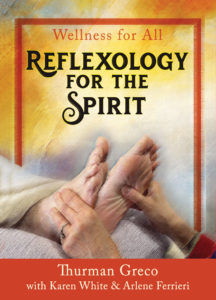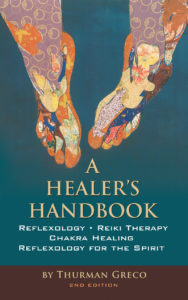Is it a Cold, the Flu, or Coronavirus?
For months we’ve all been reading and hearing about a resurgence of the coronavirus combined with the flu. So…what does this mean?
Every year I hear the same question at the beginning of flu season: HOW DO YOU KNOW WHETHER IT’S A COLD OR THE FLU? This season, the question is a little different: HOW DO YOU KNOW WHETHER IT’S A COLD OR THE FLU OR CORONAVIRUS?
There are some real differences.
Fever is rare with a cold. Fever is common with the flu. It’s usually high and lasts three or four days.
Headaches are rare with a cold but common with the flu.
Cold sufferers may have slight aches and pains. Flu sufferers have definite aches and pains which may be severe.
Extreme fatigue and/or weakness is just not a factor with a cold. Exhaustion is common with the flu – especially at the onset of the illness.
Sore throat, stuffy nose, and sneezing are common with a cold. A person suffering with a cold may have mild symptoms to include a hacking cough. With the flu, these symptoms can become severe.
With colds, treatment includes antihistamines, decongestants. With the flu, the patient needs to consult with a physician about any needed medication.
Coronavirus complicates things.
Many people experience fever as the first symptom of Coronavirus.
The second symptom is often a combination of a cough and muscle pain.
Nausea and vomiting make up the third tier.
These symptoms are usually followed by diarrhea.
And, that’s not all. Some people experience a loss of taste or smell.
And, some people experience deeply reddish-blue toes (chillblains).
Others have headache and dizziness.
The bottom line here is that coronavirus has many symptoms while colds and flu
are much less complicated.
If you suspect coronavirus, go get tested. Waiting around while you try to decide you are sick and contagious or not is not good for you and it’s not good for those around you.
There are several tools at your disposal which can help you early on.
A thermometer is essential. Take your temperature daily.
When I’m out in the community, my temperature is the key to getting into the office where I have an appointment.
The no-touch forehead fever thermometer gun has become ubiquitous on receptionists’ desks wherever I go.
There’s no reason why you shouldn’t take your temperature every morning. Your temperature can accompany your blood pressure reading. You can keep your thermometer gun beside your blood pressure cuff.
Then, you only need one other item: a pulse oximeter. A pulse oximeter estimates the amount of oxygen in your blood.
If you have coronavirus, your pulse oximeter will register a lower oxygen level in your body. This is because with coronavirus, your lungs are inflamed. (Actually, with coronavirus, inflammation is all over your body).
So, if you are concerned about your health because you may become exposed to coronavirus, you can help yourself with your temperature, your blood pressure, and your oxygen level.
If you feel ill, you will help your healthcare professional with these three scores.
For those who aren’t really familiar with an oximeter, it is the little plastic clip placed on your finger when you get your blood pressure measured.
These devices are not that expensive, are easy to use, and you can find an explanatory chart which will explain the meaning of the score.
Whatever you decide, prevention is important. Wash your hands often, wear a mask always when you leave your home, use hand sanitizer and don’t go anywhere around other people if you can help it.
Thanks for reading this blog post. If you liked this article, please forward it to your favorite social media networks.
Thanks again,
Thurman Greco
Poor Sleep Can Wreck Your Quality of Life
If you let it, POOR SLEEP will leave you feeling tired, confused, and depressed.
Sleep can have many causes. And, that’s one of the reasons we struggle with it. In past blog posts, I’ve written many articles about sleep and here is yet another one. And, there will probably be many more.
However, this article is different from all the rest. In this article, you will learn POOR SLEEP HAS MANY CAUSES. Investigate every one that applies to your situation.
Poor sleep causes fall in several categories.
To begin with, COFFEE, CIGARETTES, AND DIET PILLS are in their own little but potent category.
Is caffeine part of your poor sleep problem? Remember, it is found in many things beyond just the cup of coffee you have in the morning. Try to find them all and banish them from your daily life.
Are your days spent in rooms with DIM LIGHTING? Poor sleep can be the result of this environment. What can you do to remedy this situation? Getting just twenty to thirty minutes of sunlight each day can make a difference.
Do you get enough exercise? MOVING YOUR MUSCLES IS ESSENTIAL to overcoming poor sleep. It comes down to this: You have to move enough to get to sleep at the end of your day. Exercise. Exercise. Exercise.
Do you have one or more HEALTH ISSUES that promote poor sleep patterns? Some diseases make it hard to get to sleep. Others make consistent sleep throughout the night difficult. If sleep apnea, restless leg syndrome, and sinus problems interfere with a good night’s sleep, get treatment for them. The message here is this: Don’t let a medical condition cause your poor sleep.
Finally, we come to SLEEPING PILLS. For me, they are an absolute last resort. Sleeping pills come after you have done everything you possibly can to overcome poor sleep.
Why? Some of these pills create their own problems.
Several herbal remedies and supplements are on the market to combat your poor sleep. Two that come to mind are Melatonin and Valerian.
We don’t really know whether either one of them works because the studies have been sparse and contradictory. The preparations and dosages are varied so that it’s complicated to know how much and when to take either Melatonin or Valerian.
It’s best to take any sleeping preparations under the direction of a professional who knows about the products you are taking. That way, you won’t be wasting your money and you won’t be overdosing.
The BOTTOM LINE here is to encourage you to chase down each and every cause of poor sleep that you can. Deal with each and every cause in your search for blessed sleep.
Thanks for reading this article. Please refer it to your preferred social media network.
Thurman Greco
Depression is Your Soul Crying Out for Help.
Spiritually, your soul cries out for help. On top of all this spiritual suffering you may also have feelings of self doubt and hopelessness. When you deal with depression, you feel you are stuck in a storywith no positive ending.
Everyone feels sad occasionally. Your depression is unique, just as you are unique. There’s a difference between having the blues and being depressed. Depression is a disease of your soul. Chemicals alone cannot cure your depression.
Depression includes feeling sad, empty, or unhappy. Your sleep may be disturbed. This means you may be sleeping too much or have insomnia. Your diet may be disturbed. This means you may have lost your appetite or you may be gaining weight. Your thinking, speaking, and body movements have slowed down. You feel anxious, agitated, and restless. You have trouble thinking, concentrating, remembering things and making decisions. You have unexplained physical problems such as back pain or headache.
You may have clinical depression if you drink alcohol and smoke excessively, experience poor appetite and weight loss, are preoccupied with negative thoughts of despair, and contemplate suicide.
Whatever the symptoms, depression is a prolonged feeling of unhappiness. It may be associated with grief, divorce, or retirement. It may be connected with childbirth. Whatever the trigger, depression is a disease which can be overwhelming.
Consult with a physician when you begin your search for relief because popular treatments include antidepressants and psychotherapy. Depression is extremely treatable, so go for it!
Reflexology, Reiki, and chakra healings are not cure-alls but can certainly help. Reflexology sessions encourage homeostasis, important for positive outcomes, especially since it’s not always easy for you to find how to lift your spirits. Your sessions will help manage the side effects of any allopathic medications you may be taking.
CHAKRA
Your crown and heart chakras are unbalanced.
REFLEXOLOGY SYSTEMS TO WORK
nervous system, digestive system, respiratory system, skeletal system, endocrine system, spine, liver, and solar plexus
ESSENTIAL OILS
cedarwood, frankincense, jasmine, lemon, peppermint, rosemary, ylang ylang
RISK FACTORS
Depression is a fairly complex issue resulting from numerous factors including a genetic predisposition, hormonal shifts, sedentary lifestyle, life events, underlying health issues
EFFECTIVE HEALING FIELDS
Begin with Conventional medicine, Traditional Chinese Medicine, Naturopathy, Homeopathy. Supplement the allopathic medicine with complementary and alternative medicine treatments. Bodywork such as massage is often a positive therapy. Depression is a case where you can wholeheartedly adopt both styles of medical care. Synchronicity!
If you choose to add homeopathic remedies, consult with a homeopath for the treatment best suited to your needs.
FOODS IMPORTANT TO YOUR DIET
bananas, fresh fruits, fresh vegetables, low-fat dairy products, oats, oily fish, whole grains
Eat breakfast every day. Eat protein at every meal. Stay away from processed foods. Eat more whole grains. Better yet…get nutritional counseling!
THINGS TO TRY
Find out what’s going on in your head. You’ll get to know about things that may be causing you to feel depressed.
Flower remedies can be successful.
Physical exercise promotes a positive mental attitude. It’s important to your success in the battle to overcome depression.
Depression gives you a chance to work with parts within yourself that you don’t know about and may have repressed. When you enter therapy and work with them, you can understand your self better while you heal and transform yourself.
When you stay connected with friends and community, your worries will be in the background. Join a support group. Your physician may have a list of groups available to you. Do something you enjoy every day. Journal about it.
Try something new. A new hobby can get you out of your house and out of your head.
Thank you for reading this blog post. Please share it with your preferred social media network.
Thurman Greco












